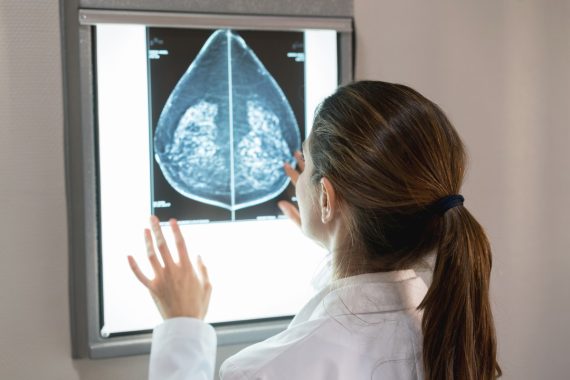Most women with early-stage breast cancer will now survive, research shows

Most women diagnosed with early-stage breast cancer today can expect to become long-term survivors, say UK researchers who have tracked mortality over time.
The analysis by a team at the University of Oxford found that women diagnosed with early-stage breast cancer are 66% less likely to die from the disease than they were in the 1990s.
Improvements in prognosis have been seen in nearly all groups of patients with the risk of death within five years falling from 14% 20 years ago to 5% for those diagnosed during 2010 to 2015, they reported in the BMJ.
The substantial fall in risk of death from the disease over the past two decades can provide some reassurance for patients and doctors, they concluded.
For those diagnosed most recently, more than six in ten women had a five-year risk of death of 3% or less.
To investigate the changes over time, researchers used data from the National Cancer Registration and Analysis Service, which included records from 512,447 women from 1993 to 2015.
In every period looked at, risk of death from breast cancer was highest during the five years after diagnosis and then fell.
A more in-depth look at 156,338 women diagnosed between 2010-15 found that mortality risk varied substantially with patient age, whether the cancer was detected by screening, whether it had certain receptors, and according to cancer size, grade and the number of lymph nodes involved.
For a small proportion of women, five-year mortality was 20% and the researchers said this information will help identify those who are most at risk.
Waiting times for referral for suspected breast cancer have been under particular pressure in some places as hospitals struggle to manage elective activity.
Study lead Professor Carolyn Taylor, professor of oncology at Oxford Population Health, said: ‘Our study is good news for the overwhelming majority of women diagnosed with early breast cancer today because their prognosis has improved so much.
‘Their risk of dying from their breast cancer in the first five years after diagnosis is now 5% on average.’
She added that the study could also be used to estimate risk for individual women in the clinic.
‘It shows that prognosis after a diagnosis of early breast cancer varies widely. Patients and clinicians can use our results to estimate prognosis moving forward.
‘In the future further research may be able to reduce the risk of dying from breast cancer even more.’
Cancer Research UK’s chief executive, Michelle Mitchell, said the study meant patients could be given a more accurate prognosis and would offer reassurance for many.
‘Through the power of science, research, clinical trials and screening over the last 20 years, huge improvements have been made in cancer diagnosis and treatment. However, the UK lags behind other countries when it comes to cancer survival.
‘The governments across the UK must show political leadership in cancer by taking action to help diagnose and treat cancers earlier and ensure the NHS has enough staff and equipment to meet the growing demands of the future.’
Pulse October survey
Take our July 2025 survey to potentially win £1.000 worth of tokens

Visit Pulse Reference for details on 140 symptoms, including easily searchable symptoms and categories, offering you a free platform to check symptoms and receive potential diagnoses during consultations.









